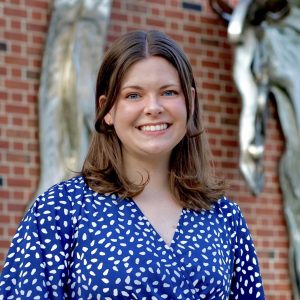Download a printer-friendly PDF of this issue
Working alone in US rural journalism
“While journalists across the globe report facing difficult labor conditions, US rural journalists face particularly acute conditions – often tasked with conducting many of the hardest tasks of journalism but with little financial, staff, or emotional support.” So began the abstract of a recent article in Journalism Practice.
Researchers explored how a sample of rural journalists said they manage their labor expectations and the challenges of working alone in remote conditions. Findings revealed them driven by promise of community and social cohesion. However, they reported finding their labor maximized, their benefits minimized, and themselves facing an increasingly hostile audience.
“That s**t is hard to get away from”: Working alone in US rural journalism” is not available in full text by open access. However, if you are interested in reading it please invite our help at acdc@library.illinois.edu
Trust at a tipping point
Results of a 2024 survey from the International Food Information Council (IFIC) reflect lack of trust among Americans in science involving food, nutrition, and diet.
Findings suggested that less than half of Americans strongly trust this science. Approximately 1 in 5 American consumers (21 percent) said they are distrusting. Here are some factors noted in this research summary from IFIC:
- “Misinformation on the internet is rampant”
- Individual ideology can contradict expert advice
- Science is complex
- Perception that recommendations keep shifting
“The current state of consumer trust in science is a pressing call to action for organizations like ours, focused on public service and health improvement.”
You can read “Trust at a tipping point” by open access.
How are Africans talking about climate
change and who is doing the talking?
That title introduced a 2023 article we are adding to the ACDC collection from the Journal of African Media Studies. Authors Rebecca Pointer and Samuel Matsiko analyzed key messages emerging from mainstream media and Twitter users in all 54 African countries. Quantitative data involving mainstream media were gathered during October 2020 through September 2021. Twitter data involved May through September 2021.
“While the nature of mainstream media coverage varies across the top five countries, a slight shift towards articles focused on adaptation and mitigation was observed, away from purely disaster narratives. Worryingly, for Twitter, very few African voices are tweeting about climate change and what they are tweeting does not draw much attention to pertinent issues on the continent in respect of climate change.”
You can read “How are Africans talking about climate change and who is doing the talking?” by open access.
Four ways to connect with conscious consumers
Consultant Steve Lerch offered four suggestions during the 2024 Global Organic Produce Expo (GOPEX) in Florida:
- Regularly use Google Trends to stay up to date on consumer interests and trends
- Review competitors’ and partners’ messaging and advertising to understand the “clutter” consumers are exposed to
- Simplify bland messaging to focus on the single most important value proposition
- Explore creative, authentic ways to connect with consumers, even if it means trying new platforms such as TikTok
You can read “How companies can connect with conscious consumers” by open access.
“Tackling the food industry and farmer disconnect”
We are adding to the ACDC collection a 2022 brief from the Center for Food Integrity (CFI). It notes that the “food and agriculture industries often talk about the disconnect between food production and consumers. However, the food industry and farmer disconnect is just as real.”
“… what we’ve found through our work at CFI is that bringing consumers and farmers together to listen and learn from each other can bridge the gap and serve as a pathway to earning trust. It’s an approach that’s needed with farmers and the food industry, too. …conversations between farmers and food companies should be happening more frequently to forge relationships.”
You can read “Tackling the food industry and farmer disconnect” by open access.
Communicator events approaching
Here are agricultural communicator event plans you may find helpful, including contact information you can use for details. We welcome suggestions or revisions for this calendar.
April 9-11, 2025
“NAMA Palooza” Conference of the National Agri-Marketing Association (NAMA) in Kansas City, Missouri.
April 14-17, 2025
“From the highlands to the islands: Bridging community learning and development through extension” Conference of the Association for International Agricultural and Extension Education (AIAEE) in Inverness, Scotland.
April 29-May 1, 2025
Annual meeting of the Turf and Ornamental Communicators Association (TOCA) in Charleston, South Carolina.
June 16-18, 2025
“Say cheese!” Annual conference of the Association for Communication Excellence (ACE) in Milwaukee, Wisconsin.
June 24-25, 2025
Annual conference of the Agricultural Relations Council (ARC) in Kansas City, Missouri.
July 9-13, 2025
Annual conference of the International Society of Weekly Newspaper Editors (ISWNE) in Brookings, South Dakota.
A lesson about time
We close this issue of ACDC News with a thought from Lucille S. Harper, freelance writer:
“Time is a great healer but a poor beautician.”
A friendly reminder:
ACDC is a deep and open resource for you, so please feel free to invite our help as you search for information, local to global. You are welcomed to follow us on Twitter @ACDCUIUC. And please suggest (or send) agricultural communications documents we might add to this unique and valued international collection. We welcome them in hard copy (sent to Agricultural Communications Documentation Center, 510 ACES Library, 1101 S. Goodwin Avenue, University of Illinois, Urbana, IL 61801) – or in electronic format sent to acdc@library.illinois.edu
